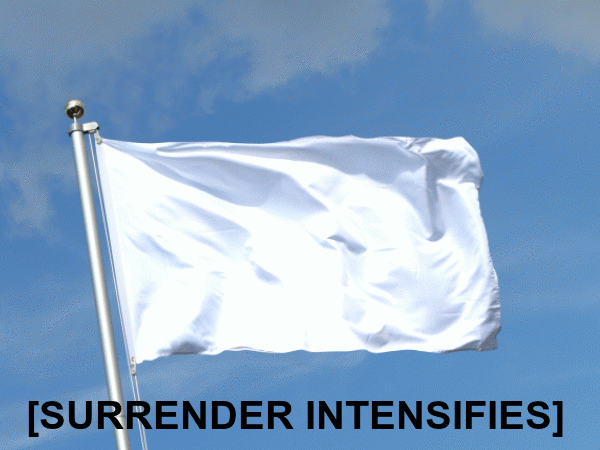This chapter is another of the history essays. Tolstoy points out that, usually, when one army is defeated by another, that results in the subjugation or loss of rights of the latter country to the former, even though the army is only a small part of the country. However, in this case, the French won at Borodino, took Moscow...then retreated and lost without actually losing any more battles. One factor in this was the lack of hay for horses. The peasants collectively decided to burn it rather than sell it to the French, depriving them of resources.
Tolstoy uses an analogy. Say France had demanded a fencing match according to the rules of fencing. Halfway through, Russia throws down his sword and grabs a cudgel instead. The French might technically have won according to the rules of fencing, but they're still about to get their face beaten in (paraphrased). The 'cudgel' in this case is the guerilla warfare of the peasants. Napoleon complains about this being against the rules "as if there were any rules for killing people".
Chapter 2
The essay continues. Tolstoy points out that, when used, guerilla warfare is always successful, despite going against the basic rules of war (which is that you should have more soldiers and attack where your opponent has less soldiers). His theory is that most tacticians are assuming that mass = force, when, in fact, mass * X = force, and the guerilla warriors have more of X which makes up for the lack of mass. Tolstoy says that 'X' is the spirit of the army. The desire of each individual to fight, and to win, rather than to just follow orders. The spirit of the French army had been entirely depleted, so they grouped together en mass instead, despite this being ineffective tactically.
Chapter 3
The first person to recognise that guerilla warfare was happening and to consciously take advantage of it was Denis Davydov, who arranged for more strikes. By October, there were hundreds of small companies, all striking at the French army. Special mention goes to Vasilisa, "The wife of a village elder who slewed hundreds of the French". According to wikipedia, she lead women and teenagers in the "Patriotic war of 1812". I did not know it was called that before, but that's making a lot of sense.
Denisov is a member of the 'irregulars', the name given to the guerilla regiments. We've not heard from him in a while! I had to do a quick google and read this to remember exactly who he was. Are we back to the story now? Dolokhov is also leading a small party nearby. It's October 22nd. They're all watching a French convoy. Denisov receives invitations from a Polish and a German commander to join their regiments and replies to both that, sadly, he is already under the command of the other.

Denisov and Dolokhov are intending to join forces and seize the convoy themselves. I wonder if this is the one holding Pierre prisoner? The convoy is about 1500 men and Denisov and Dolokhov have about 200 each, but this doesn't bother them. They take out the supply wagons, and their next objective is to capture a 'tongue' - an enemy soldier who can tell them about the inner workings of the convoy (they didn't get one with the supply wagons because they killed everyone). Dolokhov sends a peasant, Tikhon Shcherbaty, to try to seize one of the quartermasters.

